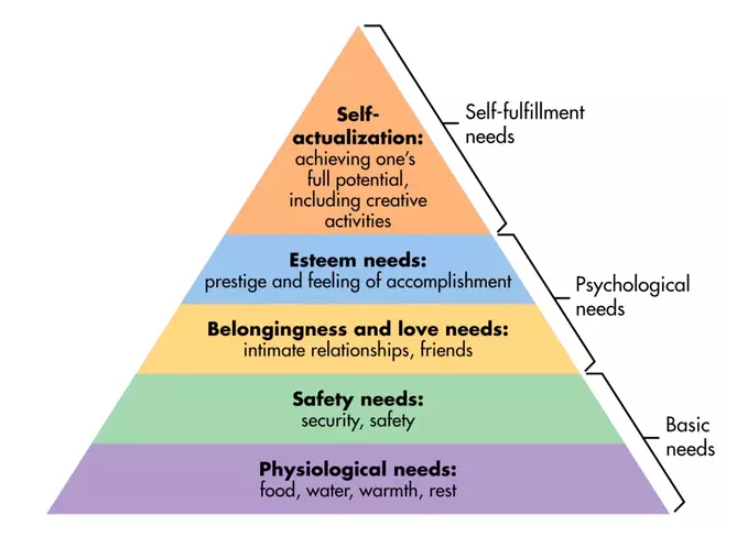
I mentioned in the previous post that humans are social creatures – belonging to a group was necessary for our survival as a species. And our survival mechanism – the threat and reward response – is therefore also triggered by social interactions.
You may have been taught Maslow’s hierarchy of needs at some point. It’s usually shown as a pyramid, with basic needs such as food and shelter at the bottom, and higher needs such as esteem nearer the top. The suggestion is that the lower needs must be satisfied before you can attend to the needs further up the pyramid.

In the pyramid, ‘belonging’ and social needs comes half way up, after physiological needs and safety needs. However, neuroscience is telling us that ‘belonging’ is a fundamental human need. When people feel excluded, the same activity in the brain is seen as when people experience physical pain. It hurts. As David Rock (2009) notes:
“…people who feel betrayed or unrecognized at work — for example, when they are reprimanded, given an assignment that seems unworthy, or told to take a pay cut — experience it as a neural impulse, as powerful and painful as a blow to the head.”
Organisations are social systems – we belong to teams, departments, branches, professions and whole organisations. If your manager thumped you, you’d rightly demand compensation! Yet, the way we treat each other can also cause pain. (Or, of course, make us feel good.) We need to be more mindful of that.
References:
Rock, D. (2009) “Managing with the Brain in Mind”, Strategy+Business, Issue 56, Autumn 2009